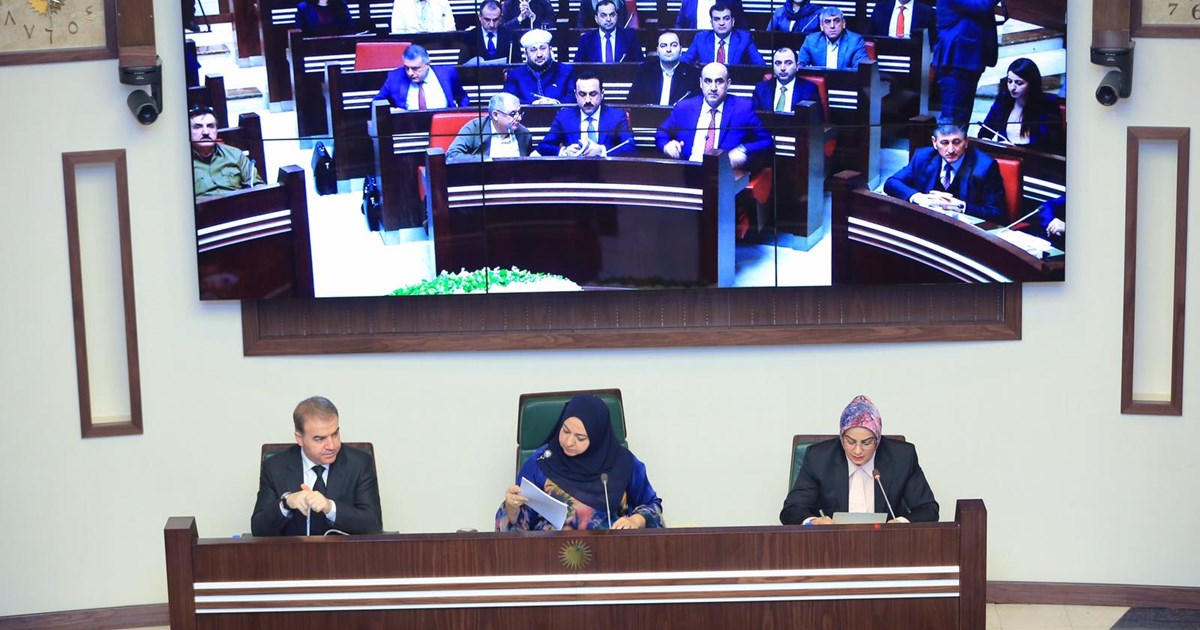Parliament passes Law on Reform of Pensions, Salaries, Allowances, Grants and Other Benefits

Kurdistan Parliament Speaker Dr. Rewas Faiq on 16 January chaired the sitting for the third reading and vote on the Reform Bill. Deputy Speaker Hemin Hawrami and Secretary Muna Kahveci also attended the sitting.
At the Bill’s second reading on 12 and 13 January, MPs gave their comments and suggestions on how to improve the articles in the interests of government employees in Kurdistan.
At this sitting, all the suggestions on each article were put to voting. MPs also voted on the title of the law, on its purpose and on the Bill as a whole. The suggestions that won the majority of votes form the text of the law.
Speaker Faiq put the Bill as a whole to a vote; 89 MPs (out of 111 seats) voted in favor of the bill.
The aim of the Reform Bill is to bring fairness to the system of government employees’ and others’ salaries, pensions and benefits. It also aims to reduce waste of government resources and public funds.
The bill proposes that pensions for all government employees be paid only when they reach the age of 45, and only after a minimum of 15 years of service.
The bill proposes to reduce the rate of pensions paid as a percentage of salary for high-ranking posts, such as ministers, general directors, MPs and advisers..
The bill aims to reduce the number of people who unjustifiably receive more than one salary, pension or benefit, or receive allowances that they should not be entitled to.
The bill includes a provision that all the government institutions will review employees’ grades and Peshmerga ranks, to ensure that their grades are correct in accordance with their years of service and qualifications.
The articles of the Reform Bill cover these areas:
Part 1: Purpose and objectives of the law
Part 2: Reorganization of the rights, benefits and privileges of the dependents of martyrs, victims of Anfal and political prisoners
Part 3: Preventing more than one claim on the general budget
Part 4: Peshmerga forces, security forces and police
Part 5: Employees’ allowances (for marriage, children, academic qualifications)
Part 6: Organizing employees’ years of service and grades
Part 7: Pensions – putting a ceiling on pensions of high grades, of maximum 50 percent of combined salary and allowances. Currently high grades receive pensions of 80 percent of salary.
Part 8: Implementation and final provisions











